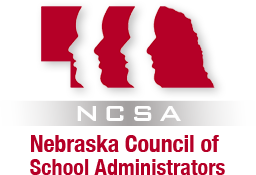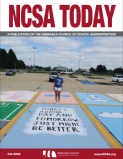Dr. Kristine Carlson
The purpose for conducting this study was to determine teachers' preferences for participative decision-making. These preferences were examined by types of situations wherein decisions are made in schools. The situation types included personnel, student, community, business, and curriculum and instruction issues. Amount of participation was measured for each situation type using the decision-making processes from the Vroom-Yetton (1973) model modified to reflect the teachers' perspectives. The role of relevance and expertise as postulated by Bridges (1967) was analyzed to determine the effect on teachers' preferred amounts of participation. An additional variable of school size was examined. Preferences were measured using a Decision-Making Inventory consisting of 25 situations. The inventory was mailed to 482 regular education senior high school teachers in the 10 largest school districts in Nebraska. Subjects were selected by random sample. Teachers in this study expressed specific preferences for involvement in decision-making. Teachers preferred the most involvement in decisions related to curriculum and instruction followed in descending order by involvement in personnel, community, student, and business issues. Teachers wanted the most involvement when they perceived the situation as relevant and when they possessed expertise. No difference was found between school size and the amount of participation desired. It was recommended that administrators consider the specific situation, teachers' expertise, and the bearing of the decision on teachers, when deciding the extent of teacher involvement. Administrators should generally include teachers in advisory groups for issues related to curriculum and instruction, and personnel issues that directly effect teachers. Administrators should usually consult teachers to gather information, ideas and suggestions, for community issues. At most, administrators should request information from teachers for student and business issues. If administrators wanted teachers more involved, training was recommended. Teachers generally wanted involvement with issues that directly pertained to them. Teachers indicated that they typically wanted to be consulted, but did not want to be involved with the decision-making. Further research is indicated to study the role of consultation with decision-making.























